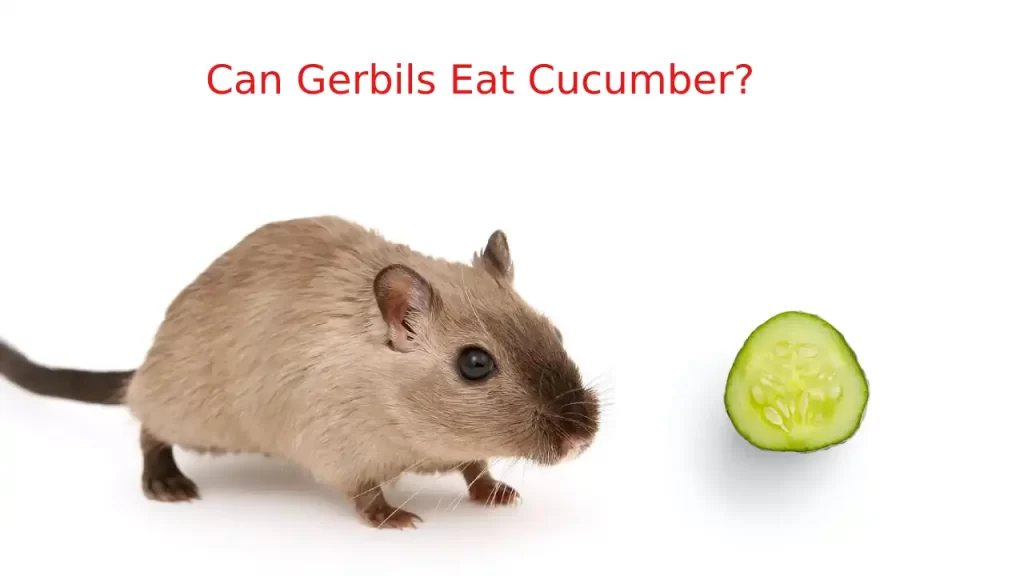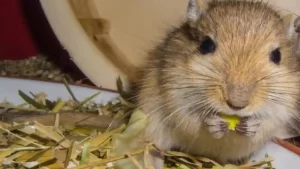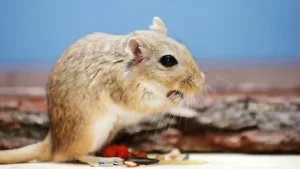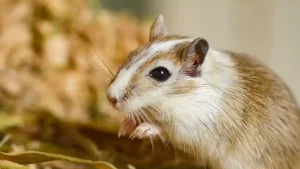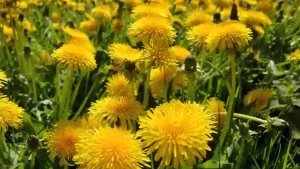The diet of a gerbil determines its health and how healthy it is! So, it’s common to think of cucumber as great food for gerbils as it contains essential nutrients but is it really true? Can gerbils eat cucumber?
Cucumber is good food for gerbils and contains fat, protein, and carbohydrate. But since cucumber has 95% water content, it should be given as an occasional snack in small amounts. When feeding cucumber to your gerbil, be sure to remove the seeds and skin first. Gerbils can also eat other vegetables such as carrots, broccoli, and celery.
If you feed your gerbil nothing but cucumber, it will become sick because it lacks key vitamins and minerals. So, cucumber should only be given as a treat and not as a mainstay of your gerbil’s diet.
We recommend this commercial gerbil food ” Wild Harvest Food and Unique Edible Treats for Gerbil’s diet” (check current price at Amazon) as a good gerbil food for its balanced diet and you must get this if you own pet gerbils like me.
Do Gerbils Like Cucumber?
Gerbils like crunchy foods and they will eat cucumber if there is no other choice. But if there are options for other food like carrots, hay, or insects, they will move towards other food.
It is also true that each gerbil is different and therefore their food habits are also different from each other.
Generally, wild gerbils also like to eat hay, vegetables, pellets, lettuce and insects.
Can Gerbils Eat Raw Cucumber?
Gerbils can eat raw cucumber as part of a healthy diet. Cucumber is a good source of water and also provides some vitamins and minerals.
However, gerbils should only eat small amounts of cucumber as part of a varied diet to ensure they stay healthy.
Can Gerbils Eat Cooked Cucumber?
Yes, gerbils can eat cooked cucumber safely but it is not the best food for them. Cooked cucumber does not have much nutritional value for gerbils and can cause some digestive problems. It is best to avoid feeding cucumber that is cooked to your gerbil.
You can either bake or fry a cucumber, but be aware that the nutritional value may change. Do not give your gerbil any seasoned foods.
Can gerbils eat cucumber skin?
There is some debate on whether or not gerbils can eat cucumber skin. Some people believe that it is fine for them to eat, while others believe that it could potentially cause digestive issues.
If you are unsure, it is always best to err on the side of caution and avoid giving your gerbil cucumber skin.
Can gerbils eat cucumber seeds?
Yes, gerbils can eat cucumber seeds. Cucumber seeds are a good source of nutrients for gerbils. The seeds contain protein, fat, and fiber, which can help keep your gerbil healthy and fit.
But at the same time, the seeds are soft and therefore they are not appealing to gerbils. If there is alternative food present to them, they would just leave the cucumber seeds and move to other food.
Can gerbils eat cucumber pickles?
As far as we know, there is no nutritional value in cucumber pickles for gerbils. Pickles have a high sodium presence and other harmful spices that can cause serious health problems in gerbils.
In fact, cucumbers are generally not a good food source for gerbils. So it’s probably best to avoid gerbils eat pickles.
Can baby gerbils eat cucumber?
Baby gerbils cannot eat adult food until they are 3 weeks old and have developed teeth. At 3 weeks old, they can start to eat things like cucumber.
At first, only give them a small piece to try. If they seem to enjoy it and don’t have any problems digesting it, then you can give them more.
Just be sure to watch them closely to make sure they’re not eating too much.
How many cucumbers can gerbils eat?
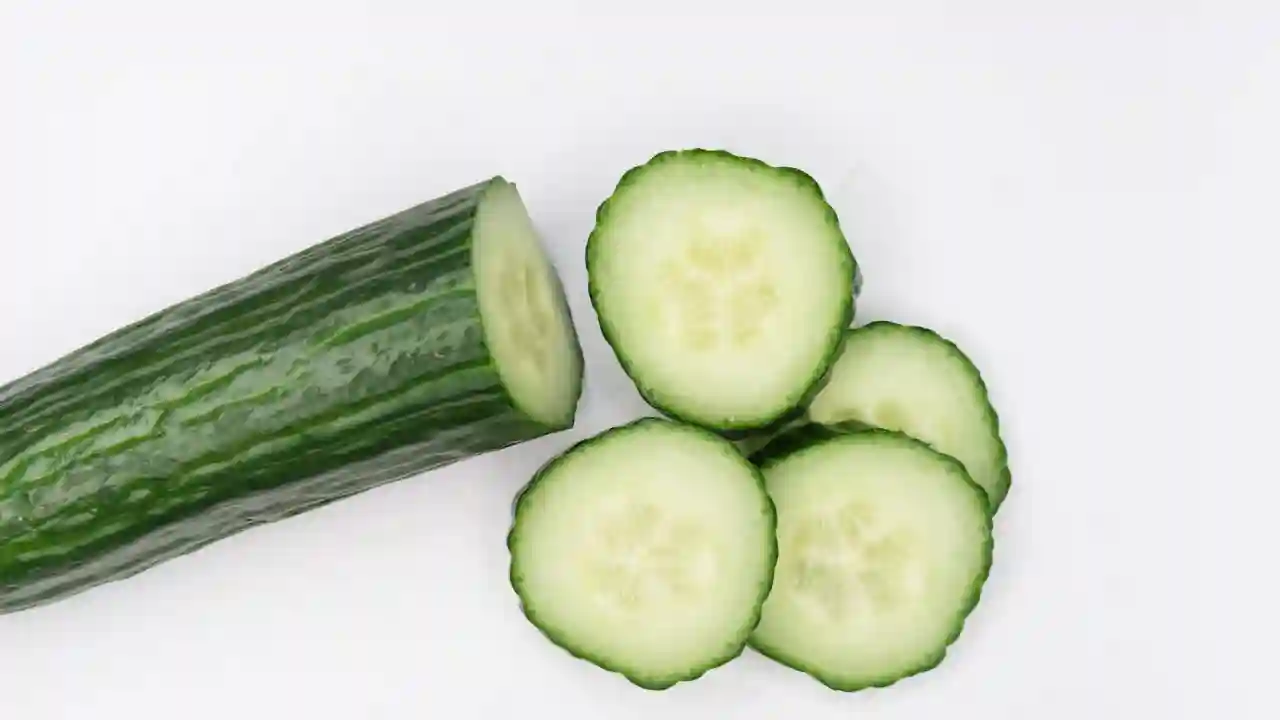
Do not feed cucumbers to gerbils, as it could disturb their digestive system; give them a bite-sized portion instead. But in case they are dehydrated, give them cucumber in a very small quantity.
If a gerbil does eat a cucumber, watch it closely for any signs of distress.
How often can gerbils eat cucumber?
Gerbils’ diet mostly consists of seeds and hay. But they can have other fruits and vegetables. Since gerbils are sensitive to foods that contain too much water, avoid giving them cucumber more often.
Gerbils can be given cucumber once a month to keep them hydrated. However, it is best to give them other vegetables and fruits as well so they get a variety of nutrients.
What if my gerbil consumes too much cucumber?
If a gerbil consumes a lot of cucumbers, it could experience digestion difficulties but it is not toxic.
If your gerbil is having trouble digesting cucumber, offer it other vegetables such as carrots or celery instead.
Reasons Why do gerbils enjoy eating cucumbers?
When gerbil live in wild, it get water from eating roots but when they are kept as pet gerbil, it likes eating watery foods.
- Cucumbers are a good source of hydration for gerbils.
- Cucumbers contain essential nutrients that gerbils need for good health.
- Cucumbers are a low-calorie food that helps gerbils maintain a healthy weight.
- The crunchy texture of cucumbers helps keep gerbils’ teeth clean and healthy.
- Gerbils enjoy the taste of cucumbers, making them a delicious and healthy treat!
Are Gerbils Allergic to Cucumber?
Cucumbers are not common where wild gerbils live. In the United States, however, people sometimes feed their gerbil cucumbers as a treat.
If your gerbil has never had cucumber before, start with a small piece to see if there is any reaction.
Some people report that their gerbils are allergic to cucumber, but it is more likely that they are reacting to the water in the cucumber.
When cucumbers are stored in the refrigerator, they release a gas that can irritate a gerbil’s respiratory system.
If you notice your gerbil sneezing or having difficulty breathing after eating cucumber, remove the cucumber and consult a veterinarian.
Health Benefits of Cucumber for Gerbils
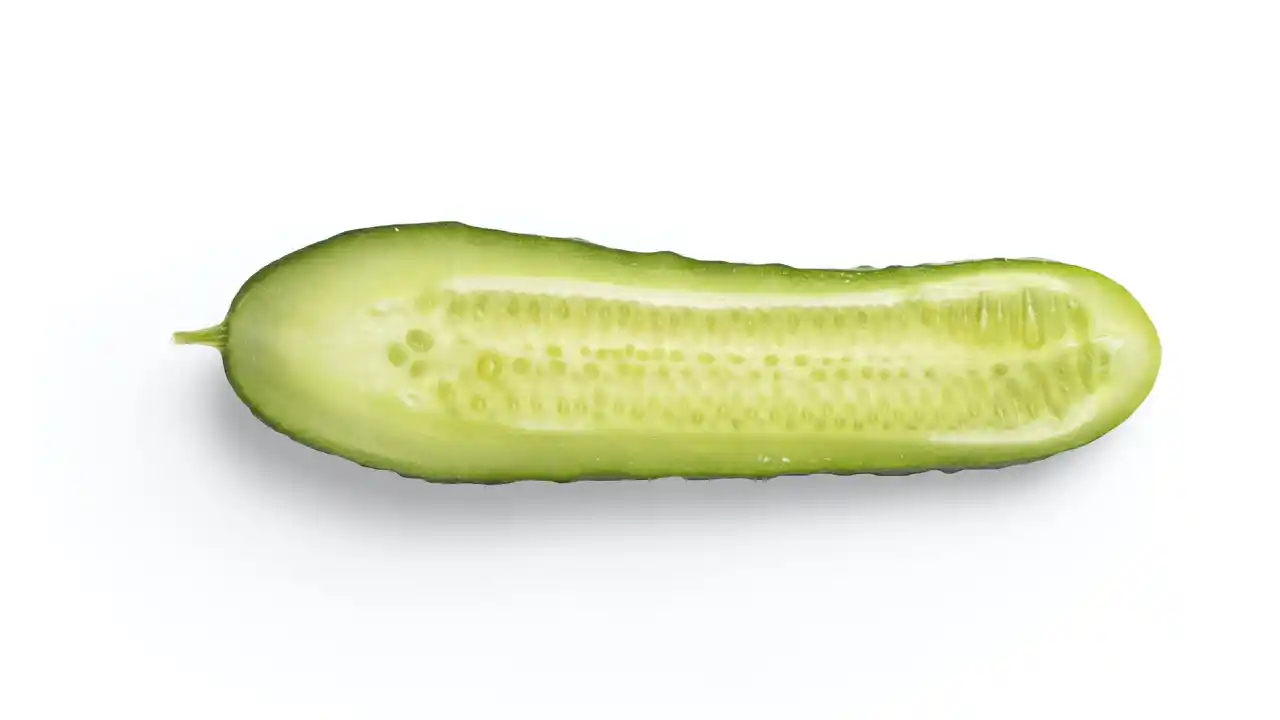
Cucumbers are a great source of hydration for your gerbil. They are also low in calories and a good source of fiber, which can help keep your gerbil’s digestive system healthy.
Additionally, cucumbers contain vitamins C and K, as well as potassium and magnesium, all of which are important for your gerbil’s overall health.
Low in calories – Cucumbers are mostly water, so they’re low in calories. This can make them a good treat for gerbils who are trying to lose weight or maintain a healthy weight.
High in water content – Cucumbers are 95% water, making them an excellent source of hydration. Gerbils who live in hot climates or who exercise frequently may benefit from the extra water found in cucumbers.
Good source of fiber – Cucumbers contain both soluble and insoluble fibers. Soluble fiber can help regulate your gerbil’s blood sugar levels, while insoluble fiber aids in digestion and prevents constipation.
Contain vitamins and minerals – Cucumbers are a good source of vitamins C and K, as well as potassium and magnesium. These nutrients are important for your gerbil’s overall health.
May help with weight loss – Because they are low in calories and high in water content, cucumbers may help gerbils lose weight or maintain a healthy weight. Additionally, the fiber in cucumbers can help keep your gerbil feeling full and satisfied after eating.
May improve digestive health – The fiber in cucumbers can help keep your gerbil’s digestive system healthy and regular. Additionally, the too much water content in cucumbers can help to soften stool and prevent constipation.
Can be a healthy treat option – Cucumbers are a healthy treat option for gerbils. They are low in calories and fat and high in water content, fiber, and important vitamins and minerals.
Nutrients Present in Cucumber
Different foods contain different proportions of key macronutrients that different animals need to thrive.
Cucumbers are a refreshing, hydrating food that is made up of mostly water but also provides a small number of carbohydrates, electrolytes, and vitamins.
Though they are not a significant source of any one nutrient, cucumbers do contain small amounts of several vitamins and minerals that are essential to human health.
One cup (104 grams) of cucumber slices contains:
Water: 96%
Carbohydrates: 3%
Dietary fiber: 1%
Vitamins and Minerals in Cucumber
Vitamins:
Vitamin C: 4% of the Reference Daily Intake (RDI)
Vitamin K: 16% of the RDI
Folate: 2% of the RDI
Minerals:
Potassium: 4% of the RDI
Manganese: 5% of the RDI
Magnesium: 2% of the RDI
Phosphorus: 1% of the RDI
Copper: 1% of the RDI
Vitamin C
Cucumbers are a good source of vitamin C, providing 4% of the RDI in one cup (104 grams).
Vitamin C is a water-soluble vitamin that acts as an antioxidant in your body. It’s involved in collagen production, iron absorption, wound healing, and immunity.
A review of 11 studies showed that taking at least 200 mg of vitamin C per day reduced the duration of cold symptoms by an average of 8% in adults and 14% in children.
While you can get your recommended intake of vitamin C from cucumbers, other excellent sources include bell peppers, broccoli, strawberries, oranges, and leafy greens like kale and Brussels sprouts.
Vitamin K
Cucumbers are also a good source of vitamin K, providing 16% of the RDI in one cup (104 grams).
Vitamin K is a fat-soluble vitamin that is important for blood clotting and bone health.
Your body needs vitamin K to produce proteins that regulate blood clotting. These proteins are called clotting factors. Without enough vitamin K, your blood may not clot properly, and you may bleed excessively from even a minor injury.
Vitamin K also helps keep your bones healthy by playing a role in calcium absorption. It does this by activating osteocalcin — a protein needed for bone formation — in your bone cells.
While you can get your recommended intake of vitamin K from cucumbers, other good sources include leafy green vegetables like kale, Swiss chard, and spinach.
Folate
Cucumbers are also a good source of folate, providing 2% of the RDI in one cup (104 grams).
Folate is a water-soluble B vitamin that is important for cell growth, DNA synthesis, and nervous system function.
Your body needs folate to produce red blood cells and prevent anemia. It’s also needed for the proper development of your baby’s neural tube during pregnancy.
While you can get your recommended intake of folate from cucumbers, other good sources include leafy green vegetables, legumes, and fortified foods like breakfast cereals and bread.
Potassium
Cucumbers are a good source of potassium, providing 4% of the RDI in one cup (104 grams).
Potassium is a mineral that is necessary for proper muscle contraction and heart function.
Your body needs potassium to maintain fluid balance, and it helps regulate blood pressure by countering the effects of sodium (10).
While you can get your recommended intake of potassium from cucumbers, other good sources include sweet potatoes, tomatoes, avocados, and kidney beans.
Manganese
Cucumbers are a good source of manganese, providing 5% of the RDI in one cup (104 grams).
Manganese is a mineral that is involved in bone formation, wound healing, and metabolism.
It’s also an important cofactor for enzymes that protect your cells from damage and play a role in energy production.
While you can get your recommended intake of manganese from cucumbers, other good sources include clams, oysters, mussels, spinach, and pineapple.
Magnesium
Cucumbers are a good source of magnesium, providing 2% of the RDI in one cup (104 grams).
Magnesium is a mineral that is involved in over 600 reactions in your body, including muscle contraction, protein synthesis, and blood sugar control.
It’s also necessary for energy production and the proper function of your heart, nerves, and muscles.
While you can get your recommended intake of magnesium from cucumbers, other good sources include leafy green vegetables like spinach and Swiss chard, nuts, and seeds like pumpkin seeds and almonds, and fish like tuna and salmon.
Vitamin A
Cucumbers are a good source of vitamin A, providing 1% of the RDI in one cup (104 grams).
Vitamin A is a fat-soluble vitamin that is important for vision, immunity, and reproduction.
Your body needs vitamin A to produce visual pigments in your retina, which absorb light and allow you to see at night. It’s also needed for the proper function of your immune system.
While you can get your recommended intake of vitamin A from cucumbers, other good sources include sweet potatoes, carrots, leafy green vegetables like kale and spinach, and dairy products.
Minerals
Cucumbers are a good source of several minerals, including potassium, magnesium, and manganese.
These minerals are important for various functions in your body, such as muscle contraction, metabolism, and bone formation.
Frequently Asked Questions
Is cucumber poisonous to gerbils?
No, cucumbers are not poisonous to gerbils. However, as with any food, you should always wash them thoroughly before feeding them to your pet. You should also cut them into small pieces so that your gerbil can easily eat them.
Conclusion
The bottom line is that if you feed gerbil cucumber it is perfectly safe and healthy for them. There’s no need to worry about your little furball chowing down on a refreshing cucumber slice. It might even enjoy the taste!
But make sure to give them cucumbers in small amounts as they are watery and can cause diarrhea.
References
https://www.rspca.org.uk/adviceandwelfare/pets/rodents/gerbils/diet
https://www.nutritionvalue.org/Cucumber%2C_raw%2C_with_peel_nutritional_value.html
https://www.livescience.com/cucumber
http://www.whfoods.com/genpage.php?tname=foodspice&dbid=42#nutritionalprofile
Dehydrated? These 7 Foods Will Satisfy Your Thirst and Hunger
https://www.eatright.org/

